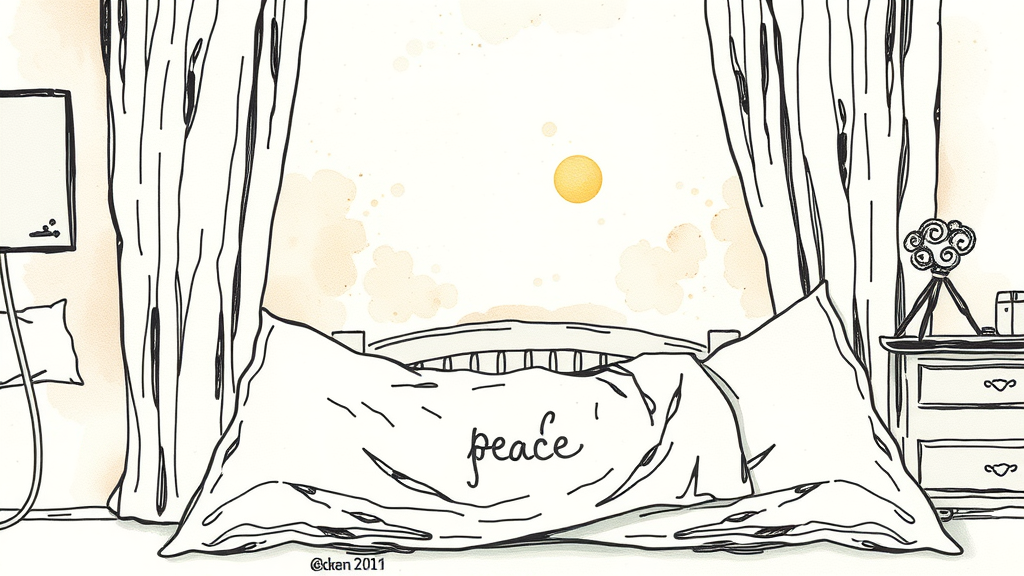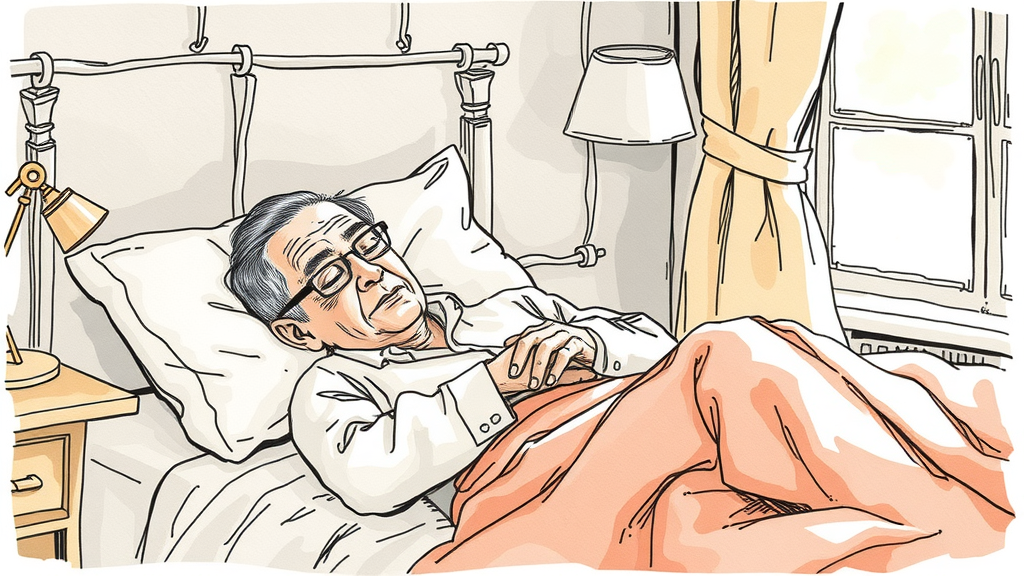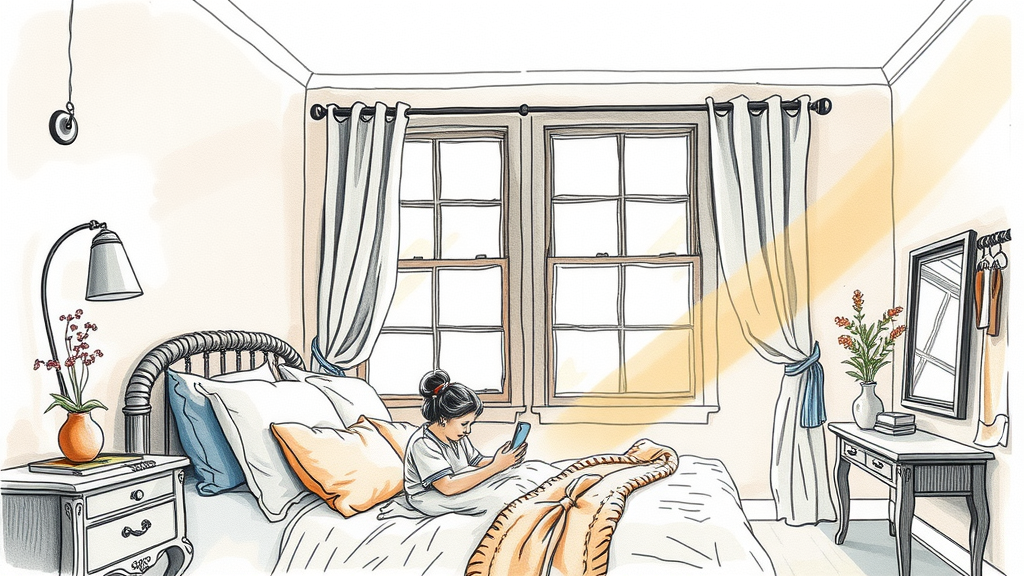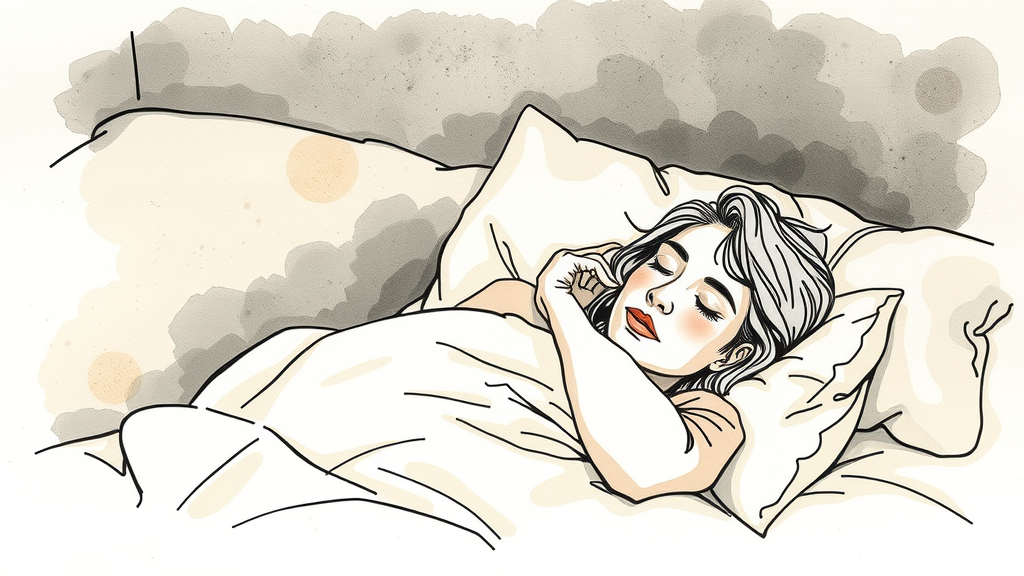· Don Schmidt · Guides · 6 min read
The Ultimate Guide to CBTI for New Dads: Reclaiming Sleep and Well-being
New dads struggling with sleep? Discover CBTI, a powerful drug-free sleep therapy. Learn how this effective treatment helps you reclaim rest & well-being.
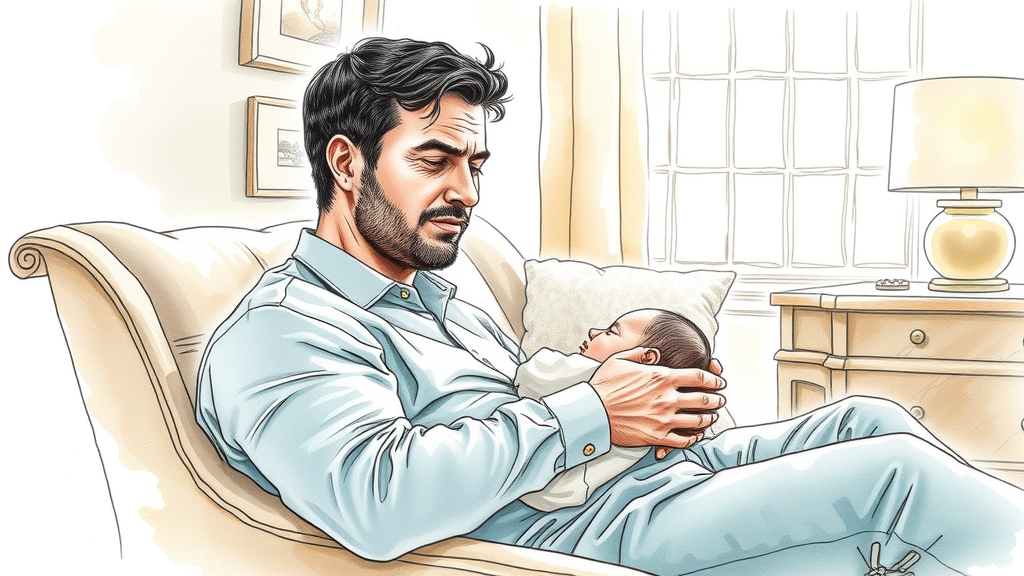
The Unspoken Challenge: Sleep Deprivation for New Dads
Becoming a new dad is an incredible journey filled with immense joy, profound love, and often, significant sleep deprivation. While much attention is rightly paid to new mothers, fathers too face immense challenges in adjusting to a newborn’s demanding schedule. The constant interruptions, the worry, and the sheer exhaustion can quickly accumulate, leading to chronic fatigue, irritability, and even feelings of overwhelm. If you’re a new dad struggling to get consistent, quality sleep, you’re not alone. The good news is there’s an incredibly effective, drug-free sleep treatment that can help: Cognitive Behavioral Therapy for Insomnia (CBTI).
What is CBTI? Your Path to Restful Nights
You might be wondering, “What exactly is CBTI?” At its core, CBTI is a structured, evidence-based program that helps individuals overcome chronic insomnia and other sleep problems. Unlike sleeping pills, which offer a temporary fix, CBTI addresses the underlying thoughts, feelings, and behaviors that contribute to poor sleep. It’s considered the gold standard for insomnia treatment and is a powerful sleep therapy that teaches you practical strategies to improve your sleep habits and patterns.
This comprehensive approach teaches you how to identify and change unhelpful sleep-related thoughts and behaviors. For new dads, this can be particularly beneficial as it equips you with tools to navigate the unique sleep challenges of parenthood, helping you to adapt and find restful periods even amidst the chaos.
Why CBTI is Ideal for New Dads
New dads often experience a unique set of sleep challenges. Beyond the obvious fragmented sleep caused by baby’s awakenings, there’s also the mental load: the stress of new responsibilities, financial concerns, supporting your partner, and ensuring your baby’s well-being. These anxieties can make it difficult to fall asleep, even when the baby is sleeping. CBTI is particularly well-suited for new fathers because:
- It’s a drug-free sleep treatment: You don’t need to worry about side effects, dependency, or how medication might affect your ability to care for your baby.
- It’s empowering: CBTI provides you with concrete skills and strategies, putting you in control of your sleep, rather than relying on external aids.
- It addresses the root causes: Instead of masking symptoms, CBTI tackles the thoughts and behaviors that disrupt sleep, leading to long-term improvements.
- It’s adaptable: While it requires commitment, many CBTI principles can be adapted to fit the often unpredictable schedule of a new parent.
Key Components of a CBTI Program
A typical CBTI program involves several core components, each designed to address different aspects of insomnia. While professional guidance is recommended, understanding these elements can provide insight into how this sleep therapy treatments for dads works:
1. Sleep Restriction
This might sound counterintuitive, but sleep restriction actually involves limiting the time you spend in bed to the actual amount of time you are sleeping. The goal is to build up sleep drive, making you feel more tired and leading to more consolidated sleep. As your sleep efficiency improves, your time in bed is gradually increased. This technique is especially powerful for new dads who might spend hours tossing and turning during those rare moments of quiet.
2. Stimulus Control
This component aims to break the association between your bed and wakefulness. It involves a set of rules designed to “re-educate” your brain to associate your bed only with sleep and intimacy. Rules include going to bed only when sleepy, getting out of bed if you can’t sleep after 20 minutes, and using your bed only for sleep and sex.
3. Cognitive Restructuring
New dads often harbor anxious thoughts about sleep (“What if the baby wakes up again?” “I’ll never get enough sleep!”). Cognitive restructuring helps you identify and challenge these unhelpful thoughts, replacing them with more realistic and positive ones. This reduces the mental arousal that often prevents sleep.
4. Sleep Hygiene Education
While not a standalone treatment, good sleep hygiene supports CBTI. This involves educating you on habits that promote good sleep, such as maintaining a consistent sleep schedule (as much as possible with a newborn), creating a comfortable sleep environment, avoiding caffeine and alcohol before bed, and limiting screen time.

5. Relaxation Techniques
Learning relaxation techniques like deep breathing, progressive muscle relaxation, or mindfulness can help calm your mind and body before sleep. These are invaluable tools for new dads dealing with stress and anxiety related to their new responsibilities.
Implementing CBTI as a New Dad
While the principles of CBTI are straightforward, applying them with a newborn requires patience and often, professional guidance. Consider:
- Prioritizing communication: Talk to your partner about shared sleep goals and strategies.
- Seeking professional help: A CBTI therapist can tailor the program to your unique circumstances as a new dad, especially with irregular sleep patterns.
- Being patient: It takes time to rewire sleep habits. Consistency is key.
- Focusing on quality over quantity: Even shorter, more consolidated blocks of sleep can be more restorative than fragmented long stretches.
Remember, investing in your sleep isn’t selfish; it’s essential for your physical and mental health, and for being the best dad you can be. A well-rested dad is a more patient, engaged, and resilient dad. Managing parental stress is crucial, and sleep is a cornerstone of that management.
Frequently Asked Questions About CBTI for New Dads
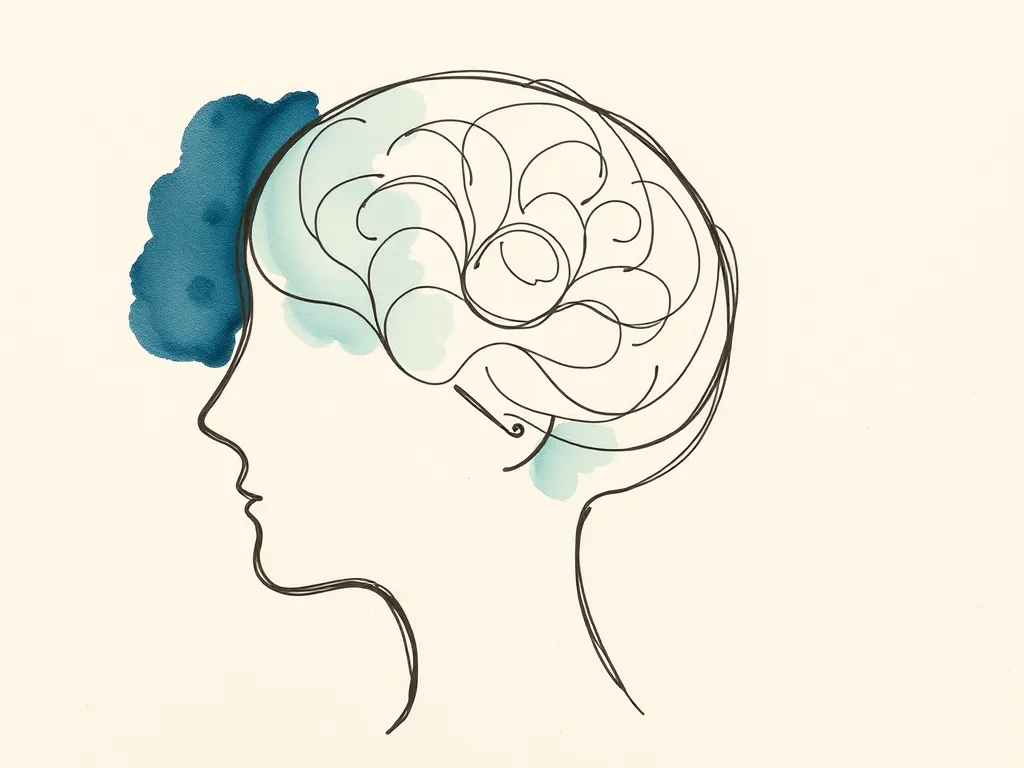
Q1: Is CBTI effective even with a newborn’s unpredictable schedule?
A1: Yes, CBTI can be highly effective. While a newborn’s schedule presents unique challenges, the core principles of CBTI, such as building sleep drive and breaking negative sleep associations, can be adapted. A CBTI therapist can help tailor strategies to accommodate fragmented sleep, focusing on making the sleep you do get more efficient and restorative.
Q2: How long does it take for CBTI to work?
A2: Most individuals begin to see improvements within 4-6 weeks of starting CBTI. Significant and lasting changes often occur over 8-12 weeks. Consistency and adherence to the program are key to achieving optimal results.
Q3: Can I do CBTI on my own, or do I need a therapist?
A3: While self-help resources are available, working with a trained CBTI therapist is highly recommended, especially for new dads dealing with complex sleep disruption. A therapist can provide personalized guidance, address specific challenges, and ensure you’re applying the techniques correctly. For additional support, consider resources focused on postpartum mental health support.
Q4: Will CBTI help with general fatigue from being a new dad?
A4: CBTI primarily targets insomnia and chronic sleep problems. By improving your ability to fall and stay asleep when the opportunity arises, it can significantly reduce general fatigue. However, some fatigue is inherent to caring for a newborn. CBTI helps you maximize the quality of the sleep you do get, making you better equipped to handle the demands of parenthood.
Conclusion
Becoming a father is a transformative experience, but it doesn’t have to come at the cost of your well-being. CBTI offers a powerful, drug free sleep treatment solution for new dads struggling with sleep. By addressing the root causes of insomnia and equipping you with practical tools, it can help you reclaim restful nights, reduce stress, and fully embrace the joys of fatherhood. Don’t let sleep deprivation define your early parenting journey – explore CBTI and invest in your sleep for a healthier, happier you.
Assess Your Sleep Quality Today
Take our My Sleep Health Score assessment to get personalized insights about your sleep patterns and discover how CBT-I can help you achieve better sleep.
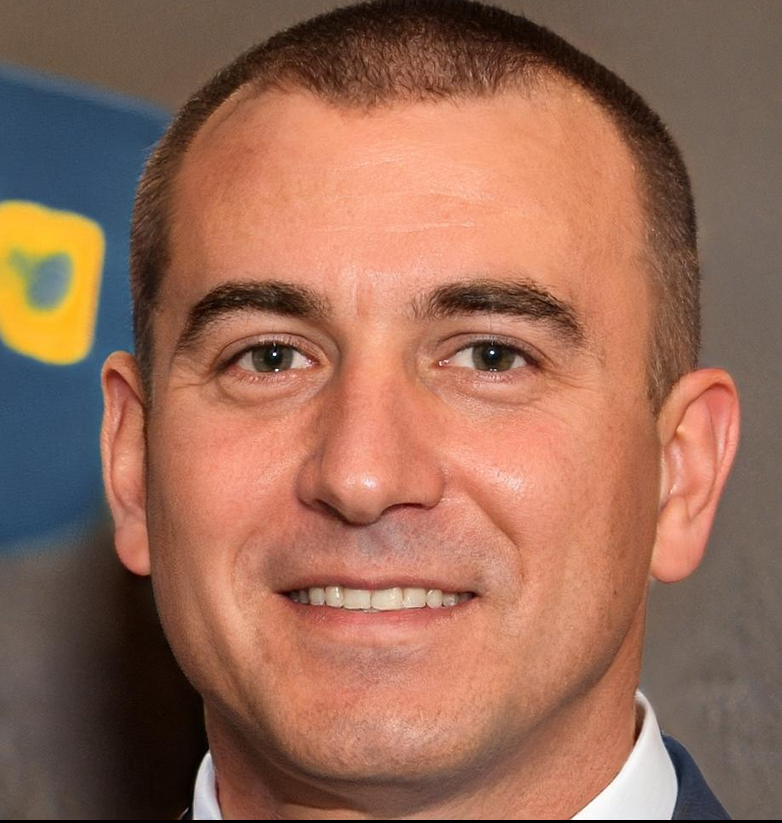
Don Schmidt
15+ years of experience in sleep therapy and Cognitive Behavioral Therapy for Insomnia (CBT-I). Passionate about connecting individuals struggling with sleep disorders to evidence-based, non-medical treatment solutions. Author of hundreds of articles and comprehensive guides on sleep health, CBT-I techniques, and overcoming insomnia. When not helping clients achieve better sleep, you can find me hiking with my family and dogs or enjoying a good book.
Ready to connect with a provider?
Allow us to connect you with a provider who can help.
